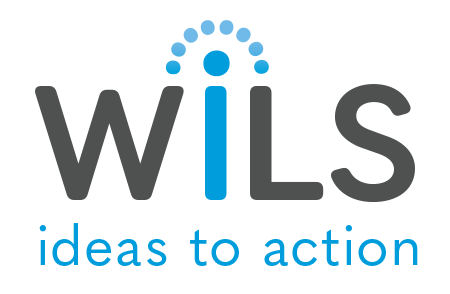At WiLS, we want to bring valuable information to our library partners, including information about the missions and big ideas of the vendors they may already do business with. Each month, WiLS will interview a vendor partner in order to bridge the gap and open the door to valuable collaborations. This month, we are delighted to share insights from WiLS’ vendor partner Matthew Goldner, Product and Technology Advocate at OCLC. (Also, Matthew will be headlining Peer Council as our keynote speaker this year, June 4th at the Pyle Center in Madison. Be sure to register after April 17th.)
Tell us about your company’s background. OCLC began as a group of academic libraries in Ohio that banded together to do cooperative cataloging. This was in 1967, so the idea of using computers to do data management was still pretty new. The libraries formed OCLC and hired Fred Kilgour, a former Yale University librarian, to design the system. The network and database they designed allowed libraries to do online, cooperative cataloging, which began in 1971. Fred’s vision was basically twofold: improve access to information and help libraries control costs. Cooperative cataloging was, at the time, a great way to do both of those. Over time, other services that made use of this shared data—such as interlibrary loan, discovery and back-office management—were added. That database, known as WorldCat, has information about more than 315 million unique materials and more than 2.1 billion specific items in libraries as well as a central index of over 1.3 billion article citations. Today, OCLC is the largest nonprofit library cooperative in the world.
Why do you, personally, choose to work with libraries? Having worked in and with libraries since the 1970’s, I continue to believe in their incredible value to society. We are far more than just the archivist of the human record, but are a dynamic part of society contributing to its advancement and success. We are incredibly fortunate that in the United States a concept of freely available access to information provided by libraries is an ingrained part of our culture, and a value to stand up for and be proud to participate in. It is a great pleasure to work with dedicated librarians around the world, committed to their mission and not afraid to be innovative and sometimes take real risks to make our contribution to society and culture.
What do you like to know about the libraries you work with? What helps you better understand their needs? The word “library” refers to such a huge range of institutions, from small rural, public libraries with just a couple staff up to large, academic research libraries with hundreds of workers. When we think about library needs, I think it’s best to push a little further and ask about the needs of the communities they serve. In many cases, even though two libraries may be vastly different in size or scope, when you ask about user needs, they’re often quite similar. People need access to information. They need it to be fast, and in formats that make sense for how they work and live. One of the great things about working at a large cooperative is that you end up seeing the commonality across many libraries. And we can work on sharing ideas and best practices that are, if not universal, at least widely helpful.
What big ideas are being worked on at your company? What problems are being solved? Right now I think linked data is one of the most exciting “big ideas” we’re working on. It’s a fairly complex topic. But, basically, it’s the idea of breaking data out of industry-specific silos and making it available for sharing and reuse in more areas, across more types of services. For example, while bibliographic records are, obviously, very useful to libraries, the specific format makes them hard to deal with for other types of companies, like search engines, publishers, mapping services… anything, really. But the metadata contained in and about bibliographic records is extremely valuable. Information about authors, topics, characters, places, people, dates… it’s all relevant in many other academic, cultural and business areas. By working to get library information into linked data formats, we’re making it easier for other industries and partners to find value in the unique, important knowledge that’s contained in libraries. In specific cases, this means driving web traffic from popular sites back to library resources from within the workflows that people use every day.
Another big idea that is probably more familiar to most is that of “cloud computing.” Beginning a few years ago, we began to move all our OCLC services into a common, networked, online infrastructure. We call this WorldShare, and it’s begun to show real results for our member libraries. Moving services into the cloud serves both parts of Fred Kilgour’s original vision. When more library management activities are handled in one place, they save time and money that they can then use to better serve their users. It also makes it easier to create connections and partnerships with other service providers, which goes towards improving access to the world’s information.
How can librarians become partners in product or training development? At OCLC, it’s basically a case of just raising your hand. If you want to be involved in development… we’re happy to have your input! As a member owned, member governed non-profit, our libraries are involved at every stage of development, starting with guiding the overall strategy of the organization. Most of our board members are librarians and many have been involved as representatives to our global or regional governing councils. We rely heavily on the participation of member libraries for planning, testing and ongoing feedback about our products and services. As far as training goes, one area that’s unique for us is WebJunction, a cooperative community specifically designed for knowledge sharing among librarians. Individual librarians can join, for free, and get access to all kinds of training resources.
